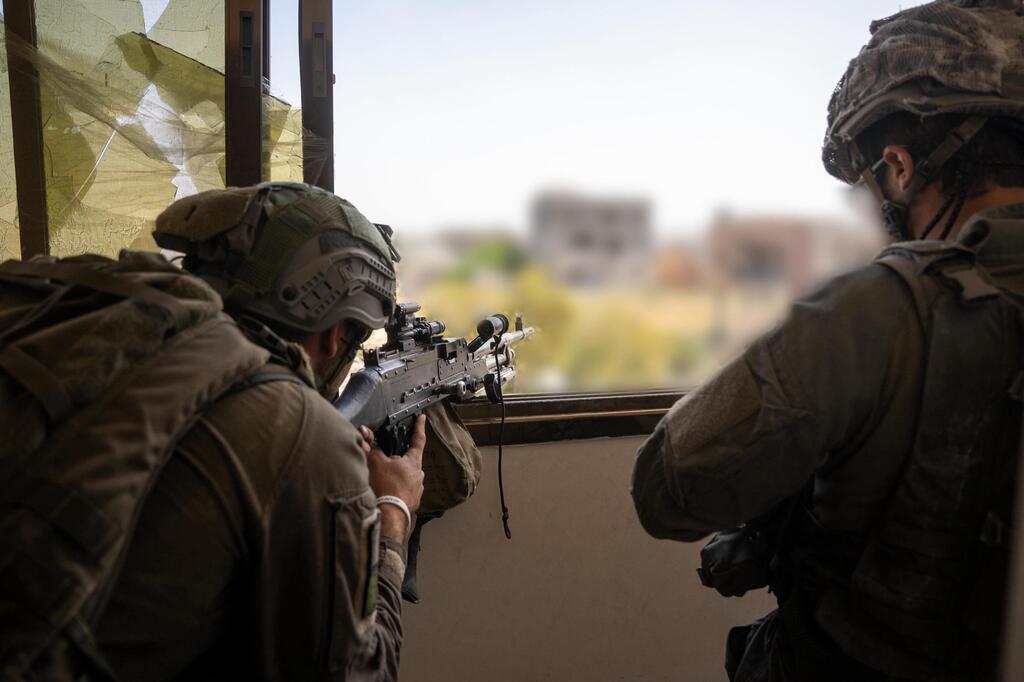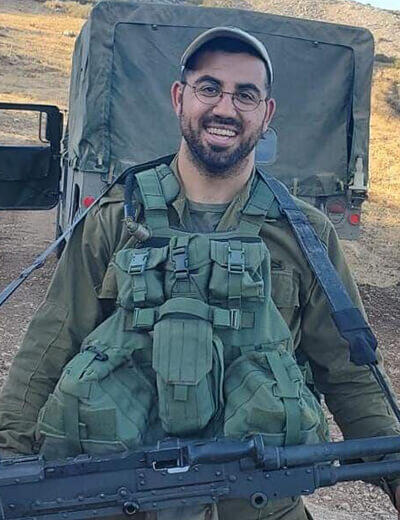Getting your Trinity Audio player ready...
A group of Israeli reservists is calling on the government to implement urgent reforms to support the reserve forces, warning that without immediate action, the country’s national security could face serious risks.
“We’ve been buckling under the weight for a long time,” said Master Sgt. (Res.) Roshel, 33, from Tel Aviv. “Decision-makers need to see us and understand that without massive support for the reserve system, the security of the state will be in jeopardy — and there will be no way back.”
Roshel, who has served roughly 230 days in reserve duty since the war began as a combat commander in the 551st Brigade, is one of thousands of reservists taking part in a growing campaign for better conditions, rights and recognition. On Sunday, he and fellow members of the group Magen HaDor ("Shield of the Generation") held a conference to unveil a sweeping reform plan aimed at addressing what they say is a growing crisis in Israel’s reserve system.
“We went out to fight for our country and when we came back, we discovered the country wasn’t fighting for us,” members of the organization said in a joint statement. “Now we’re fighting for our rights.”
The event opened with a panel of active reservists sharing personal accounts of their service during the war. It also included the first public presentation of the Magen HaDor reform proposal, which seeks to improve reservists’ rights and promote a more equitable military draft law.
Among those participating was Lali Deri, whose son, Staff Sgt. (Res.) Saadia Yaakov Deri, was killed in June by mortar fire in Gaza.
“I see this conference as an opportunity to express gratitude to young fighters, some of whom moved directly from active duty to reserve service without ever experiencing civilian life,” she said. “We need more soldiers. This isn’t just about social equality — it’s vital for our national security.”
The reform plan includes both individual benefits and national policy changes. The group proposes a simple principle: “Those who serve — receive. Those who don’t — don’t.” Specific recommendations include:
- Financial incentives for employers who hire reservists.
- Government-funded mental health care and reintegration support.
- Broad discounts on National Insurance and health insurance payments.
- Additional tax credits for reservists.
Capt. (Res.) Shira, 35, from Jerusalem, who completed over 300 days of reserve duty in the Home Front Command’s rescue and firefighting unit, said: “It’s vital that reservists get everything they need to keep fighting for the country — with dignity. We will continue to serve, but the state must provide the stable ground we need. Life after reserve duty has been completely disrupted.”
On a broader level, the reform plan calls for a significant expansion of IDF conscription, including a minimum annual target of 22,000 ultra-Orthodox recruits. It also promotes universal service across all sectors of society — military, civil or national. The group is pushing for legislative changes in the upcoming Knesset session to ensure state budgets directly support those who serve.
“The conscription law isn’t just a passing issue — it’s a matter of national survival,” said Sgt. (Res.) Shaked, 30, from Rishon LeZion, who has served approximately 170 days in the Home Front Command. “Reservists aren’t getting what they deserve. That’s leading to lower turnout rates and harming our ability to carry out missions.”
Lt. (Res.) Matan, 27, from Be’er Sheva, who served 150 days as a platoon commander in the Home Front Command’s 951st Rescue Battalion, added, “We must strengthen the status of those who serve — people who give and show up without condition. We need to prevent the collapse of this critical system that carries an ever-growing burden.”
Other proposals include granting reservists preferential status in government tenders, employment, academic admissions and land allocation.
Get the Ynetnews app on your smartphone: Google Play: https://bit.ly/4eJ37pE | Apple App Store: https://bit.ly/3ZL7iNv
Maj. (Res.) Omri, 30, from Rehovot, who served 130 days in the Air Force as a personnel officer, emphasized the need for certainty in uncertain times. “Ensuring reservists’ rights is one of the best ways to increase motivation and support those who truly need it.”
Sgt. (Res.) Nadav, 25, from Hadera, who completed 270 days in the 226th Brigade, said: “There is deep frustration that after more than a year of fighting, our rights have dropped off the public agenda. Only when everyone shares the burden can we build a just and united society.”
Tomer, 33, from Herzliya, a communications officer who has also served 230 days in the war, said the group will press the Knesset to adopt the plan as a matter of urgency. “Today we presented the ‘Magen HaDor’ plan — the emergency plan for reservists — and we intend to advance it in the coming legislative session.”




